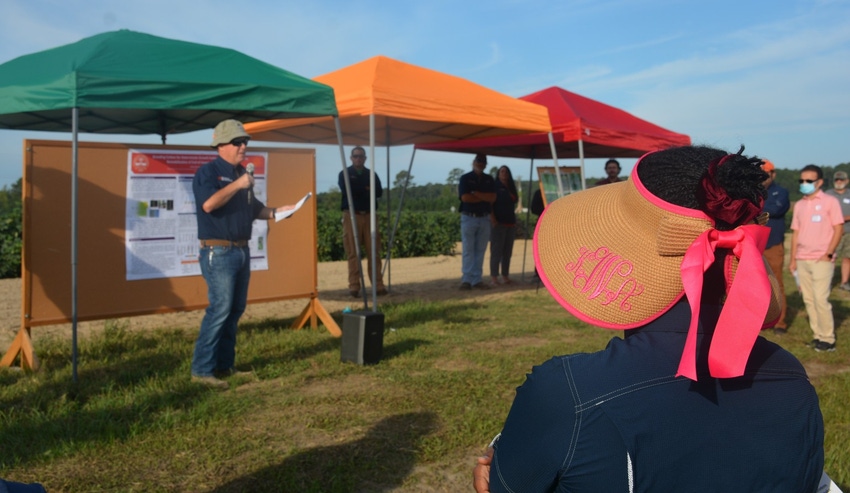
Results from last year’s USDA cotton fiber quality research trial conducted on three sites across South Carolina and North Carolina show great promise with some of the experimental lines presenting fiber quality comparable to Pima.
Speaking at the Pee Dee Research and Education Center Field Day in Florence Sept. 1, Todd Campbell, USDA research geneticist working out of the Pee Dee Center, said ideal growing conditions last year made for exceptional fiber length and fiber strength in all of the experimental lines being evaluated.
“We had five out of 18 lines that showed a consistent fiber length about 5% lower than Pima cotton. We currently don’t grow Pima cotton here, but the value of Pima is twice that of Upland. We’re approaching Pima-like fiber quality. That’s just one year. We need to see if we can duplicate those fiber quality measurements this year in terms of strength. Three of the 18 lines would qualify for Pima strength,” Campbell said.
Campbell envisions the day where South Carolina cotton farmers will be paid a premium for better fiber length and strength.
Campbell said the South Carolina Cotton Board funded research project began 10 years ago. In the project, Campbell and his team take the most elite material from the USDA breeding program and evaluate them at the Pee Dee Center in Florence, the Edisto Research Station in Blackville, and the Sandhills Research Station in Jackson Springs, N.C. Different sites are chosen to evaluate the experimental lines in a variety of weather and soil environments.
Each year, 20 entries are evaluated. This includes a standard high-yield check variety. For the last several years, the standard check has been Deltapine 1646 B2XF. The other check is a conventional Pee Dee cotton breeding line that was released eight years ago and offers good fiber quality and good yield stability. The other 18 entries are experimental lines.
Campbell noted that all the lines are conventional cotton, They don’t have transgenic traits for herbicide resistance or other transgenic traits.
“Compared to Deltapine 1646 B2XF, three were higher yielding. A big focus of our breeding program is fiber quality. Eleven were longer. All 18 lines were stronger in terms of fiber strength, compared to Deltapine 1646 B2XF. One thing I’m really excited about from the data last year is our fiber quality was exceptional. We had the right weather situation to maximize the length and strength potential of these experimental lines,” Campbell said.
About the Author(s)
You May Also Like






